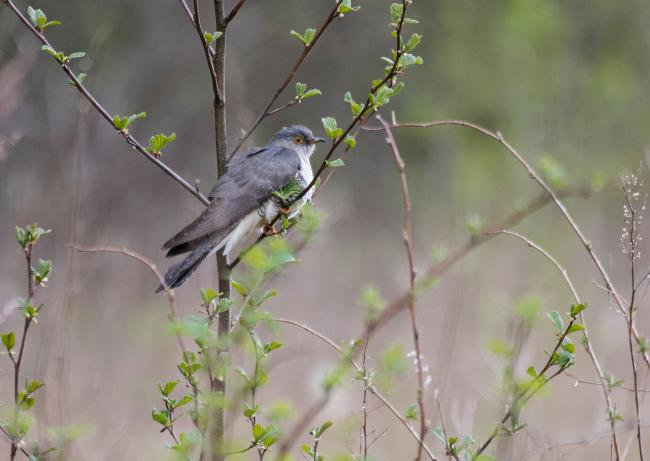Cuckoo
Cuckoo

https://elurikkus.ee/generic-hub/occurrences/11288368-69dd-4e0d-b766-3652afe53cc0
In Estonian folklore, the cuckoo is the most popular and versatile bird. Because of the male bird’s sound cuckoo-cuckoo it is also known as a ‘cuckoo-bird’ or ‘wild cock’. In folk religion a cuckoo is known as an omen bird whose sound predicts the years left to live, a death, luck, marriage, weather and the harvest. The cuckoo is special because it doesn’t build its own nest. It lays its eggs in the nests of smaller birds and leaves them to be reared by them. The cuckoo’s ‘stepparents’ are called 'cuckoo’s farmhands' or 'wives'. The cuckoo’s song provides material for puns in Estonian, because his voice is rendered as 'kuku', which matches the word 'fall!' in Estonian (kukkuma ‘to fall’). Therefore an Estonian cuckoo is literally singing: “fall, fall, fall!” Although Estonian contains many onomatopoeic words, the verb kukkuma 'to fall' has not developed from the cuckoo’s sound, but perhaps from the actual noise of falling.
Mathilda Matjus, Taive Särg (Hiiemäe 2013). Translation: Maarja Villandi-Reiljan.

